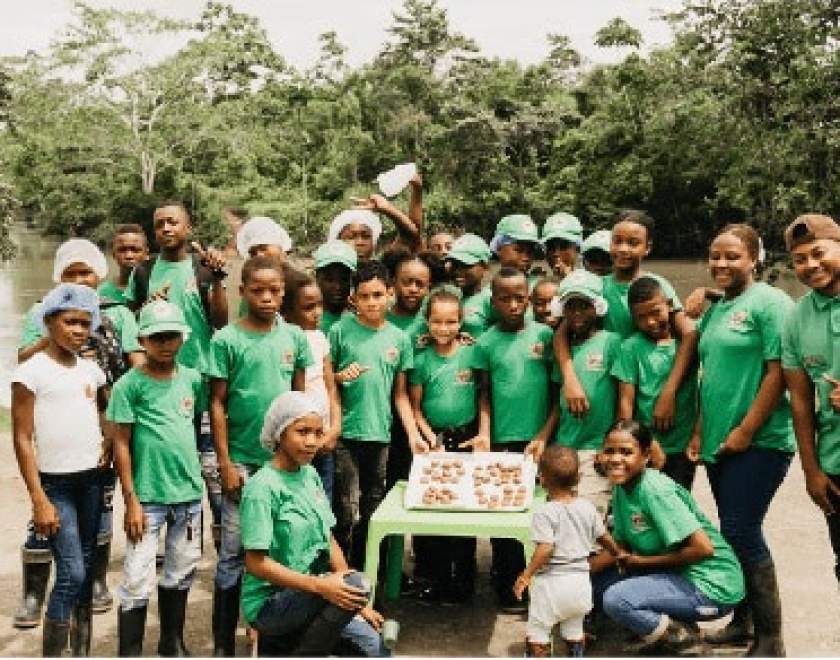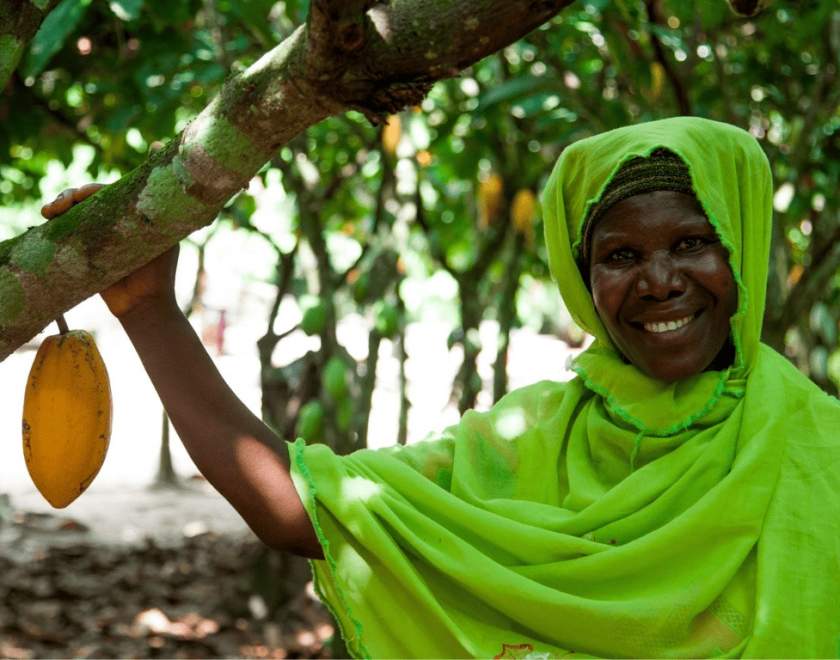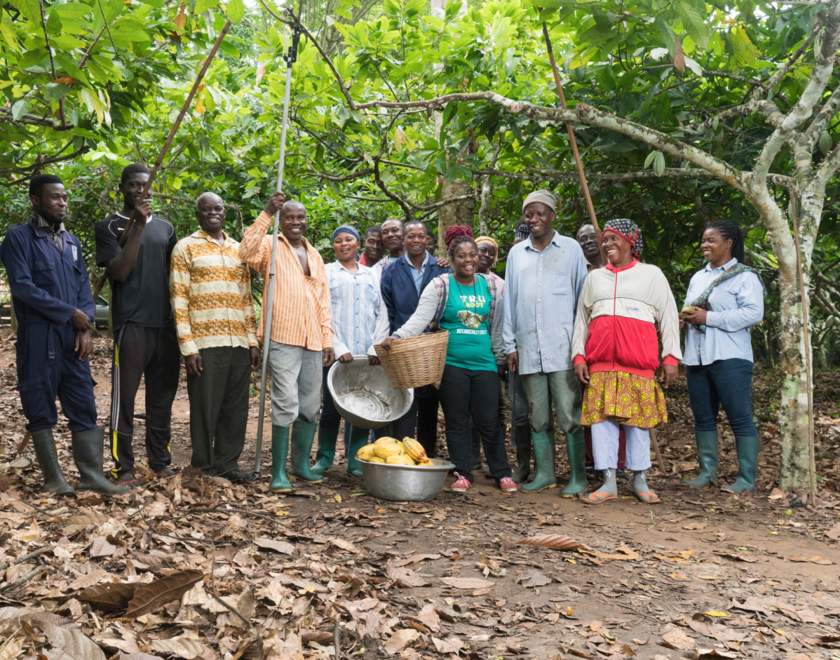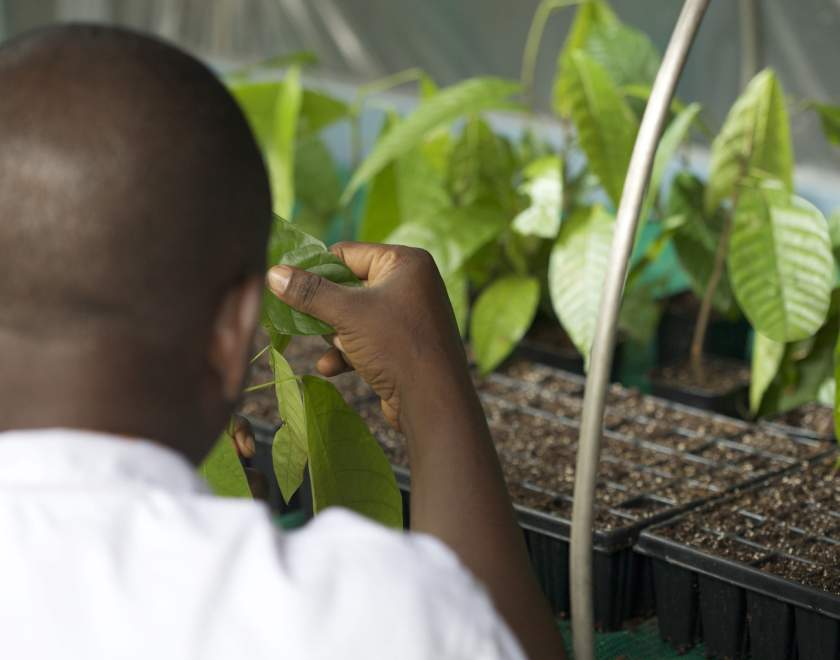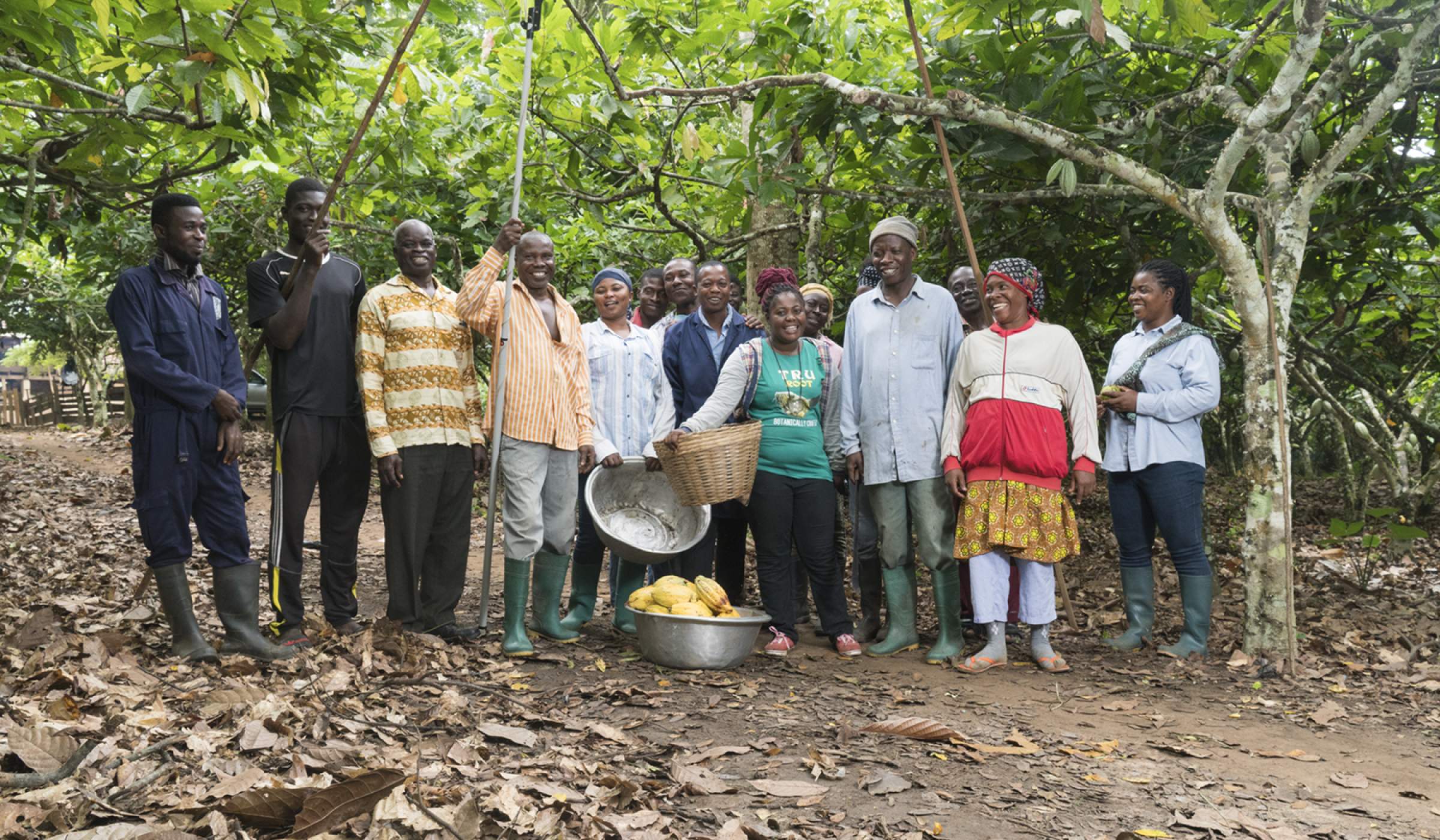
In late December 2022, Fairtrade unveiled a new Cocoa Standard, reinforcing our focus on human rights, the fight against deforestation, traceability, and living incomes.
Standards are the backbone of the Fairtrade system. Through them, we aim to make the implementation of due diligence processes in Fairtrade supply chains both effective and equitable, promoting more meaningful partnerships between farmer organizations and other commercial actors.
When we update standards at Fairtrade, we celebrate the outcome of rigorous consultation and decision-making processes involving all actors across the Fairtrade supply chain. This update was no exception with hundreds of stakeholders participating from more than 20 countries over the last two years.
Gaining alignment and finding the appropriate Fairtrade Standard interventions for topics such as Human Rights and Environmental Due Diligence (HREDD) has been no easy feat. Despite numerous debates and challenges, we ultimately landed on four simple principles to determine the right way forward; the Fairtrade Cocoa Standard must be fair, robust, regionally appropriate, and promote partnership.

- FAIR
Fairness for farmers is Fairtrade’s DNA. The cocoa sector is broadly agreed that the burden of protecting human rights and the environment must not fall solely on the shoulders of cocoa farmers but be shared across the entire supply chain from exporter to retailer.
Fairtrade splits the responsibility of compliance between farmer organizations and other commercial actors. Commercial actors are obliged to support farmer organisations in the prevention of child labour and deforestation. Importantly, Fairtrade recognizes existing investment commercial actors are already making in these areas when considering compliance to avoid duplication.
For those commercial actors neither directly nor indirectly engaged in such initiatives, we are providing a means to support farmer organizations. Fairtrade’s new Programme for Child Labour and Forced Labour Prevention and Remediation will provide contributions to Ivorian and Ghanaian cocoa farmer organizations implementing quality prevention and remediation interventions, required in the Standard. The programme will be launched with €450,000 of funding and has the potential to grow through contributions by partners and stakeholders across the entire supply chain.
- ROBUST
The new Standard also supports legislative objectives in HREDD by ensuring effective and meaningful system implementation for Fairtrade farmers.
Meaningful system implementation is best achieved when farmer organizations are owners of their own data, identifying their most salient risks and accessing resources to address them. For instance, we have a process for farmer organizations to receive meaningful deforestation risk management data and to reinforce first mile traceability via our partnerships with Earthworm and Farmforce.
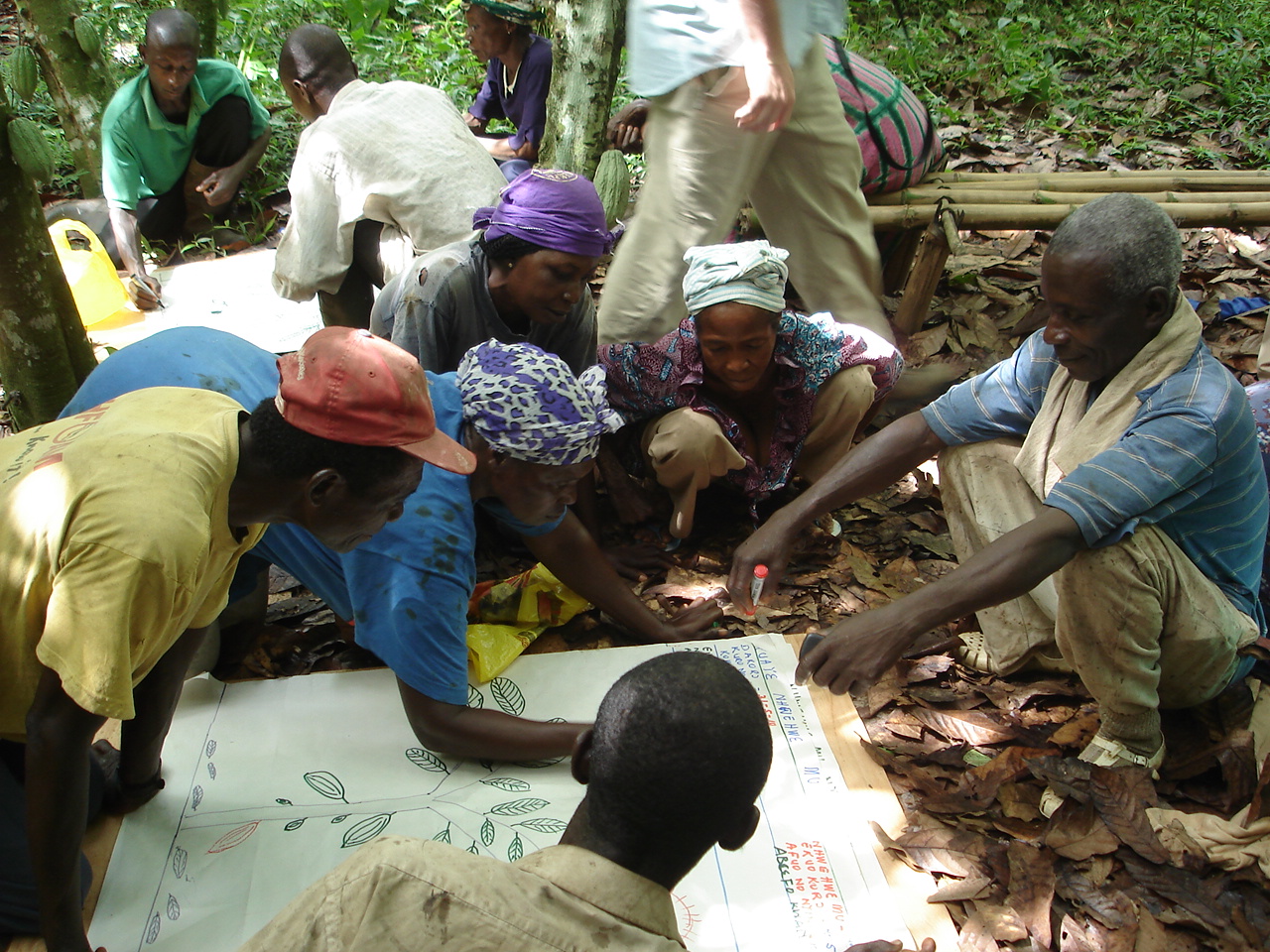
Farmer organization training in Goase, Ghana, with Earthworm Foundation, ground truthing deforestation alerts in 2022.
It is important to highlight that Fairtrade can effectively support a company’s HREDD work but the use of Fairtrade standards and certification does not remove company due diligence responsibilities.
- REGIONALLY APPROPRIATE
The cocoa sector focuses on addressing human rights violations and environmental damage where evidence demonstrates the greatest risks. The new Standard mandates more demanding requirements in countries where the evidence of risk is widely accepted. Our farmer support adopts the same approach with programmes such as our satellite deforestation monitoring, rolled out in Cote d’Ivoire and Ghana first.
A dedicated, second consultation process on HREDD for farmer organisations in Latin America was conducted in 2022 and decisions will be finalised by mid-2023.
- PROMOTE PARTNERSHIP
Farmers must be equal and valued partners in the process to implement HREDD as they are the ones closest to those whose working conditions and lives HREDD seeks to improve.
The new Standard indeed, supports farmer organizations to have their say in designing HREDD policies and procedures and to play their role in driving key measures needed to work towards a more sustainable cocoa sector.
Of course, purchasing practices must continue to align, meaning long term trading commitments, fair prices, and demonstrable progress towards living income for farmers. This is still key to achieve HREDD goals.
Fairtrade’s updated Cocoa Standard attempts to strike a critical balance between robust requirements and fairness for farmers. It reflects Fairtrade’s long-standing commitment to the shared goals of preventing deforestation and child labour, whilst uplifting farmers’ right to a decent livelihood and their potential as leaders of a fairer, more sustainable future.

Fairtrade’s HREDD guidebook is designed to help smallholder farmer organizations around the world navigate human rights and environmental due diligence expectations.

